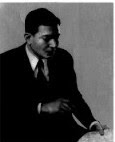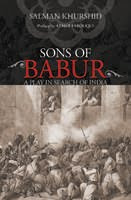Mansur Ali Khan: A railway man and social reformer
 |
| Khan Bahadur Mansur Ali Khan 1873-1934 |
It was to fill this lacunae that I turned to the archives in London expecting to gather some information about Mansur Ali Khan. He gained prominence in the area as he was the first in the 'biradaari' to have secured a well paying, established job, certainly by virtue of good education. But as mentioned earlier, it was his efforts to awaken his brethren of the need to do away with wasteful and unnecessary customs during weddings that he is best remembered for. These customs and traditions would worsen the financial condition of households but such was the apathy and hold of ignorance that nobody was interested in taking any initiative. Here, I attempt to provide a glimpse to his farsightedness and love for the community.
According to official records, Mansur Ali Khan was born on September 18, 1873 and belonged to village Godsara. While not much is known about his education (it's not clear whether he finished graduation) he joined the Oudh and Rohilkhand Railway as goods clerk. The Oudh and Rohilkhand railway was established in 1872 and in 1888 it was taken over by the British government. It is my understanding that being in a transferable job, he must have spend considerable time in bigger cities and towns like Moradabad, Allahabad, Barabanki, Hardoi, Lucknow, Meerut. This must have made him realise the backwardness in Kamsaar. Being in government service, he was aware of the importance of education and its linkage with social reform. But the situation in Kamsaar was far from satisfactory. Most of the people were engaged in agriculture or found employment in Bengal police or the army.
Convincing village elders turned out to be much more difficult than he had thought. His major aim was to get their assent to do away with dowry and focus on education. To do this he would visit the adjoining villages and conduct meetings. The response was not promising. To discard old customs was easier said than done. But Mansur Ali Khan persisted. He kept on the meetings at regular intervals and finally in 1910 a body named Anjuman Islah Kamsar-o-Bar was established. This created an environment of awakening and people saw virtue in Mansur Ali Khan's arguments. But sadly, the area continues to be beset with the same problems, although education and migration has increased the general well-being. After Mansur Ali Khan, there were some notable individuals who carried on the good work, but had limited success and the problem persists. Farms are mortgaged/sold and loans are taken out to meet the wedding expenses.
After joining as goods clerk (possibly in the 1890s), he continued to progress in his career. He became traffic inspector after few years and in 1913 he was promoted as traffic superintendent. As a superintendent, his duties and responsibilities increased and much of his time was spent in Lucknow which was the headquarters of the Oudh and Rohilkhand Railway. By 1921, he had already become District Traffic Superintendent (claims) and appeared before few important railway committees, including the famous Railway Committee headed by William Acworth whose aim was to reorganise the railway system in India.
In Jan-Feb 1921, Mansur Ali Khan was asked pointed questions about station masters and clerks receiving payments/commissions for the allotment of wagons. He replied that this had become a 'custom' across the country and that both, the railway staff and public, were to be blamed for this. Those were the days of restrictions on goods and commodities in the post-war period. Sugar and grains could command stupendous prices for the merchants provided they reached their destinations on time. And this was dependent on the availability of wagons. Then there was the question of goods being undervalued to escape higher charges. Mansur Ali Khan told the committee members how he ordered the deduction of Rs 10 per month from the salary of a station master for one year. This station master was found to be undervaluing the merchandise being transported.
An Islah committee is still in existence but it can be only through increased participation and co-operation that dowry and wasteful expenditure can be stopped. Only Allah knows how long will this movement, started by Mansur Ali Khan a century ago, continue as it seems to be a very slow work-in-progress.




Very nice article. I appreciate your efforts to dig out old records and search the gem. I add one more thing that there was a meeting to make a hostel in Ghazipur city to facilate the kamsari students in Ghazipur city. He was the man who rejected the issue and proposed a school in Dildar Nagar instead to make a hostel in Ghazipur as there were no school in Dildar Nagar. Our few students were residing in Ghazipur for education Thanks Danish for valuable article Capt Zainul Abedin Khan Pune
ReplyDeleteThank you very much Zainul Abedin sahab.
ReplyDeleteAccording to my info he was life long mayor of Lucknow. Please confirm this too. "Khan Bahadur" was a title given to him by the British.
ReplyDeleteHe was also life long Mayor of Lucknow and "Khan Bahadur" was a title given to him by the British. Please confirm this too.
ReplyDeleteYes the title was given by the British. However, he was not the lifelong mayor of Lucknow. It is not true.
DeleteVery nice article Mr.Danish . Appreciate ur effort.
ReplyDeleteHe is the grandfather of my grandparent.
Feeling honored.
Thanks. Do share pics/further information about him
DeleteNice one's article Danish Dear I am proud of U.Mr.Shahabuddin Khan, Gorasaravi.
ReplyDeleteThanks Shahab!
DeleteDear Danish,
ReplyDeleteI wonder as to how descendants of two real brothers, Kamdeo and Dhamdeo can be recognised as ancestors of two different clans: Rajputs and Bhumihars respectively.
I have found that one person, namely Dharmiar, has been very critical and uncultured while uttering his information in comments.
The confusion about the descendants of Kamdeo and Dhamdeo remains.
DeleteHello Danish khan. I really appreciate what information about our one of the kamsar pathan name as Khan Bahadur Mansur ali khan. I would like to say why don't you make a Wikipedia page on him so that more people can get knowledge about the great efforts of Khan Bahadur mansur ali khan in detail. Thank you for such a nice article.
ReplyDeletePlease make a Wikipedia page on him.
ReplyDeleteHe was my great grand grandfather. Thank you for posting about him
ReplyDelete